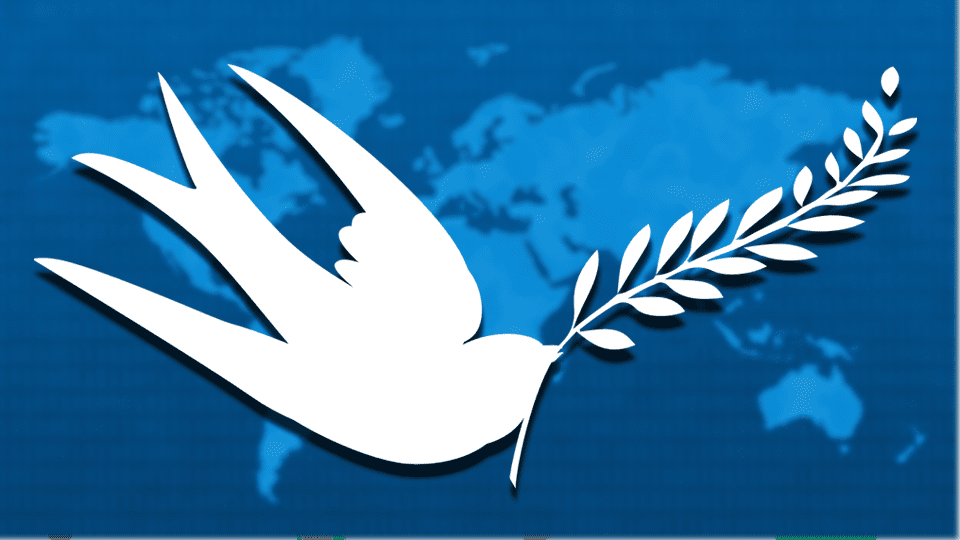The United Nations Department of Peace Operations (DPO) UN Department of Peace Operations) reported in its 2022 Report that fifty million human beings currently live in conflict zones. This data is already quite worrying and, in addition to specific places where armed confrontations occur, all world societies are experiencing a growing perception that the world is more violent and insecure.
Violence can manifest itself in many ways, from physical violence to symbolic and structural violence, and can affect different groups in different ways. This perception of insecurity can be influenced by several factors, such as the proliferation of weapons, the increase in social inequality, lack of access to justice and education, discrimination and social exclusion. In addition, the media play an important role in disseminating information about violent events, which can increase feelings of insecurity. This whole scenario shows how important and necessary the creation of the United Nations was to promote a policy of peace, tolerance, solidarity and social justice throughout the world.
The UN's primary mission is to implement peace among nations, promote sustainable development, monitor compliance with human rights and fundamental freedoms, and organize meetings and conferences in support of these objectives. The UN system is comprehensive, with several bodies and fifteen specialized agencies. With the aim of guaranteeing international stability and security through dialogue and mediation, the UN works to prevent and resolve conflicts around the world and has a wide range of bodies such as the General Assembly, the Security Council, the Department of United Nations Peace Operations, the International Court of Justice and the International Criminal Court. Created on October 24, 1945, the UN is the international institution dedicated to maintaining peace and security among nations, fostering friendship among peoples, advocating cooperation as a solution to global problems and developing human rights. . Its Charter was initially signed by 50 countries in San Francisco on June 26, 1945. Today the UN has 51 original member countries, but any nation can be part of the institution, provided it is approved by the General Assembly and recommended by the Security Council. The organization is made up of five main bodies, including the General Assembly, the Security Council and the International Court of Justice. Concomitantly with the promotion of peace, the organization is also committed to the promotion of gender equality, the protection of children and the defense of human rights and social justice, through the goals established in the Sustainable Development Goal 16 (SDG 16) and assigned to all member countries of the Organization.
The UN has a long and successful history of promoting peace, security and development around the world, working closely with its member states, regional organizations and other stakeholders. UN peace operations help countries navigate the difficult road from conflict to peace with unique strengths, including legitimacy, shared responsibility and the ability to deploy peacekeepers around the world, integrating them with civilian peacekeepers to deal with a wide range of mandates set by the Security Council and the UN General Assembly. These operations are crucial tools for preventing and resolving armed conflicts and for bringing peace and stability around the world, as they encourage dialogue and negotiation – and even support in institution building and security sector reform in places of conflict. conflict, including the protection of civilians and aid in humanitarian aid.
One of the strongest features of UN peacekeeping operations is their legitimacy. The UN is an international organization that represents all communities in the world, and UN peacekeeping operations are authorized by the Security Council – the body responsible for maintaining international peace and security. This legitimacy gives UN peacekeeping operations a solid foundation for working in conflict areas and allows them to access resources and support from a wide range of international actors.
Culture of Peace, Solidarity, Tolerance and Justice: Core Values for SDG 16
According to the UN, the most affected by violence in the world are civilians, especially women and children. They are victims of armed conflicts, domestic violence, human trafficking, discrimination, among other forms of violence. The UN works to protect human rights and encourage peace and security around the world to ensure a more peaceful and just future for all.
The culture of peace is not just the absence of armed conflict, but also the promotion of values and behaviors that contribute to a more peaceful world. This includes encouraging dialogue, tolerance, cooperation and peaceful conflict resolution. The culture of peace also involves combating discrimination, domestic violence, human trafficking and other forms of violence.
Sustainable Development Goal 16 (SDG 16) has the following main goals:
– germinate peaceful, just and inclusive societies;
– ensure access to justice for all individuals;
– enabling effective, accountable and transparent institutions.
To achieve these goals, it is essential to foster a culture of peace, solidarity, tolerance and justice as fundamental values for building a more just and egalitarian society.
Culture of Peace
The culture of peace is an important and fundamental concept for the promotion of more just, egalitarian and peaceful societies. According to the UN, the culture of peace is composed of a set of values, attitudes and behaviors that seek to resolve conflicts peacefully, promoting cooperation, solidarity and tolerance among people. These values include respect for human rights, gender equality, non-violence, non-discrimination, freedom of expression and democracy. The culture of peace also encompasses sustainable development, social justice and active citizen participation in decision-making.
To develop a culture of peace, a joint engagement of all spheres of society is necessary, from the family to government institutions. Education is a very important tool in this process, as it is through it that awareness and the development of skills and values related to the culture of peace can be developed.
Solidarity
In implementing the culture of peace, solidarity plays an important role, as it contributes to building more just, egalitarian and empathetic relationships, by involving a willingness to help and support other people, especially those who are in a vulnerable situation. It is a value that reinforces the interdependence and connection between individuals and communities.
Solidarity can be exercised in many ways, from a simple gesture of kindness to participating in collective actions to encourage social change. It is important to emphasize that solidarity should not be restricted to interpersonal relationships, but should be extended to the whole of society, including especially marginalized groups. Public policies must be oriented towards the promotion of solidarity, with the creation of programs and actions aimed at social inclusion and the fight against inequality.
Tolerance
Tolerance is another essential value to encourage a culture of peace and social justice: it involves an attitude of respect and acceptance of differences between people, be they cultural, religious, ethnic, gender, among others. Tolerance does not imply agreeing with differences, but respecting and accepting them, even if they differ from our own beliefs and values.
Promoting tolerance is important because it contributes to building a more just and egalitarian society, where people are treated with dignity and respect. Intolerance can lead to conflict and violence, while tolerance can instill cooperation and mutual understanding between individuals and communities. To awaken tolerance, it is necessary to engage all spheres of society, from the family to government institutions. Public policies must be oriented towards a culture of tolerance, with the creation of programs and actions aimed at education for diversity, the fight against discrimination and the development of social inclusion. Through personal actions, whether individual or collective, we encourage tolerance among people through the adoption of behaviors such as intercultural dialogue, participation in groups that promote diversity and the fight against discrimination, and the creation of spaces for dialogue and cultural exchange.
Justice
Justice must be administered impartially and equitably, without regard to race, gender, sexual orientation or any other form of discrimination. Enabling justice is important to ensure that all individuals have access to their rights and that laws are applied assertively and equitably. A lack of justice can lead to conflict and violence, while justice encourages cooperation and mutual understanding between individuals and communities.
To promote justice, it is necessary that public policies are oriented towards the creation of laws that guarantee equal rights and opportunities for all individuals and also through individual or collective actions, such as monitoring law enforcement, denouncing abuses and violations of rights and membership in groups that practice justice and equality.
To achieve SDG 16, it is necessary to foster a culture of peace, solidarity, tolerance and justice in all spheres of society. Only then can we create peaceful, just and inclusive societies, guaranteeing access to justice for all individuals and institutions that are effective, accountable and transparent.
Education
Education plays a key role in shaping a culture of peace, as it is through education that people acquire knowledge and skills to understand, value and respect cultural differences and human rights. Through education, we can teach values such as empathy, tolerance, non-violence and peaceful conflict resolution, in addition to encouraging citizen participation and building relationships based on dialogue and cooperation. By cultivating these skills and values in individuals from childhood onwards, we can contribute to building a more peaceful and just society.
The Essential Role of the UN in Maintaining International Peace and Security
The UN was created in 1945, after World War II, with the primary objective of preserving peace and security among nations. The international institution plays a crucial role in the search for stability and conflict prevention, as well as in the intermediation of international cooperation in several areas.
In addition to direct interference in places of conflict, the UN also acts:
- in the monitoring of the arms trade and in the propagation of disarmament actions, through international treaties and conventions that regulate the arms trade and encourage member states;
- to reduce their nuclear and conventional arsenals;
- in the protection of human rights;
- in promoting sustainable development;
- in humanitarian aid actions.
These initiatives have as their main objective the construction of a culture of peace and cooperation between countries.
Despite significant challenges, the UN works tirelessly to prevent conflict and ensure international cooperation. But the realization of a culture of peace is not limited to the UN's activities. It is necessary for society – which is us – to engage in this process, working to disseminate values such as tolerance, respect for differences and non-violence. Education is an essential tool in this process, as it allows for the formation of conscious citizens committed to building a more peaceful and just society.
The culture of peace is not an easy task, but it is essential to guarantee a better future for all and each individual must do his or her part, working to build a more peaceful and just world.




